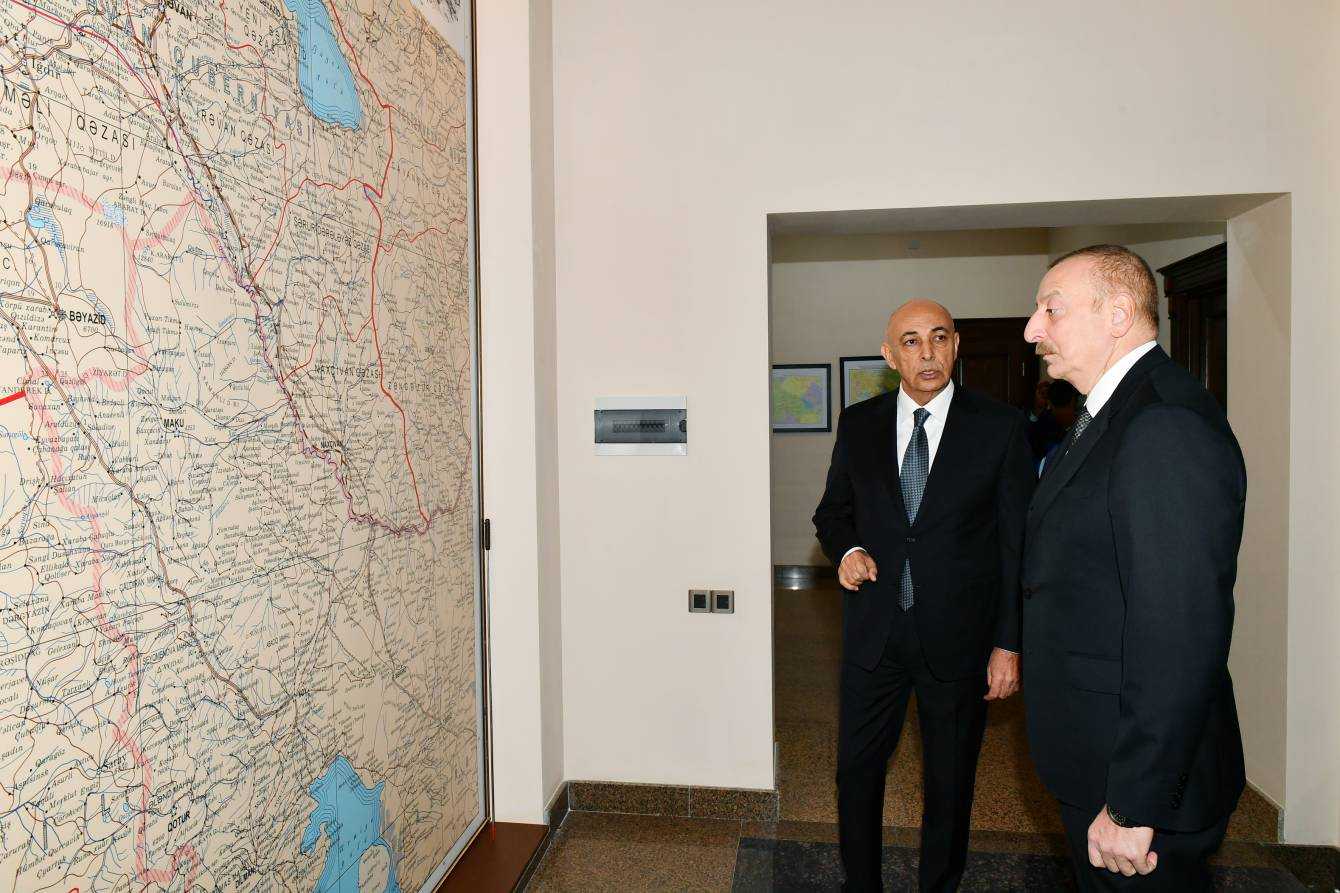
Armenian Prime Minister Nikol Pashinyan made public statements both promising a peace treaty and accusing Azerbaijan of instigating conflict during a cabinet meeting on Thursday.
Pashinyan called for the international community to pay attention to the ‘obvious fact’ that Azerbaijan was pursuing an escalation of the conflict.
Armenia’s Prime Minister cited as evidence Azerbaijani state officials’ ‘absurd speech’ about ‘Western Azerbaijan’, referring to Azerbaijani rhetoric laying claim to regions of Armenia.
[Read more: Aliyev says Yerevan ‘historically’ Azerbaijani]
Pashinyan’s criticism focused on an 18 March speech by Azerbaijan’s President Ilham Aliyev in which he stated that if Armenians wished to ‘live comfortably’, they would need to accept Baku’s conditions regarding Nagorno-Karabakh and border demarcation.
‘This speech once again demonstrates that our government has read Azerbaijan’s messages correctly from the very beginning’, said Pashinyan. ‘This policy and speech continuously questioning the Republic of Armenia’s right to exist is the reason why the Nagorno-Karabakh conflict remains unresolved’.
However, concluding his speech, Pashinyan announced that his message to the internal community was that ‘there will be a peace treaty’.
On Twitter, Pashinyan shared only his concluding remarks, asserting that there would be a peace treaty and no new escalations.
US State Department Deputy Spokesperson Vedant Patel shared the message, emphasising that the US was ‘engaged in facilitating peace discussions between Armenia and Azerbaijan’.
.@SecBlinken is very engaged in facilitating peace discussions between Armenia and Azerbaijan, and we are encouraged by the progress made toward lasting and sustainable peace in the South Caucasus. We very much appreciate @NikolPashinyan’s message on that progress. https://t.co/WquRuXBM4O
— Vedant Patel (@StateDeputySpox) March 23, 2023
Azerbaijani Foreign Ministry spokesperson Aykhan Hajizada also responded to Pashinyan’s tweet, saying that to attain a peace treaty, ‘Armenia must negotiate in good faith’.
However, speaking to local media, Hajizada stated that Azerbaijan rejected Pashinyan’s ‘accusations’, which were ‘completely unfounded’. He urged Pashinyan to ‘abandon aggressive activities such as encroachment on the territorial integrity and interference in the internal affairs of Azerbaijan’ and to ‘take lessons from history’.
He added that if Armenia was interested in peace, it would need to ‘cease attempts to interfere’ in Azerbaijan’s communication with the Armenian population of Nagorno-Karabakh, which they said was aimed at ‘reintegrating’ them within Azerbaijan.
Azerbaijani government officials have previously threatened ‘tougher’ measures, if Nagorno-Karabakh refuses ‘integration’ within Azerbaijan. Nagorno-Karabakh’s government has officially refused.
Rumours and fears of a new escalation in conflict between Armenia and Azerbaijan and in Nagorno-Karabakh have grown in recent months, in light of increasingly combative rhetoric and a rising number of ceasefire violations.
[Read more: Fears grow of new war between Armenia and Azerbaijan]
Two peace processes
Armenia and Azerbaijan began negotiating a peace agreement after the end of the Second Nagorno-Karabakh war.
Russia’s mediation brought the 2020 war to an end, and Russia has remained the main facilitator of the countries’ negotiations. However, since 2021, the EU and the US have emerged as potential contenders for that role, arranging meetings and negotiations between high-ranking officials from Baku and Yerevan.
While Azerbaijan and Armenia had aimed to sign a peace treaty by the end of 2022, a lack of progress and the mid-December closure of the Lachin corridor obstructed that aim.
Two potential peace treaties, one mediated by Russia, the other by Western countries, have been in development since the end of the 2020 war, with Armenia and Azerbaijan refusing to explicitly lend their favour to either. Neither document has been made public.
There has been widespread speculation that the Western approach would address the Nagorno-Karabakh conflict by defining the ‘rights and security’ of the local Armenian population, whereas the Russian mediation would delay the resolution of the Nagorno-Karabakh conflict, instead focusing on Armenia-Azerbaijan relations and border delimitation.
Both would address the opening of transport links between Armenia and Azerbaijan, giving Armenia overland access to Russia through Azerbaijan, and Azerbaijan access to its exclave of Nakhchivan via Armenia’s southern Syunik region.
Azerbaijan has also in recent months demanded that Azerbaijani checkpoints be installed on the Lachin Corridor, the sole road connecting Nagorno-Karabakh to Armenia and the outside world, which has been blocked by Azerbaijani protesters since 12 December 2022.
Russia and Armenia have firmly rejected the demand, with Russian Foreign Minister Sergei Lavrov suggesting Russian peacekeepers would ‘check’ the vehicles to dispel ‘suspicions that the corridor is not functioning as intended’.
For ease of reading, we choose not to use qualifiers such as ‘de facto’, ‘unrecognised’, or ‘partially recognised’ when discussing institutions or political positions within Abkhazia, Nagorno-Karabakh, and South Ossetia. This does not imply a position their status.








